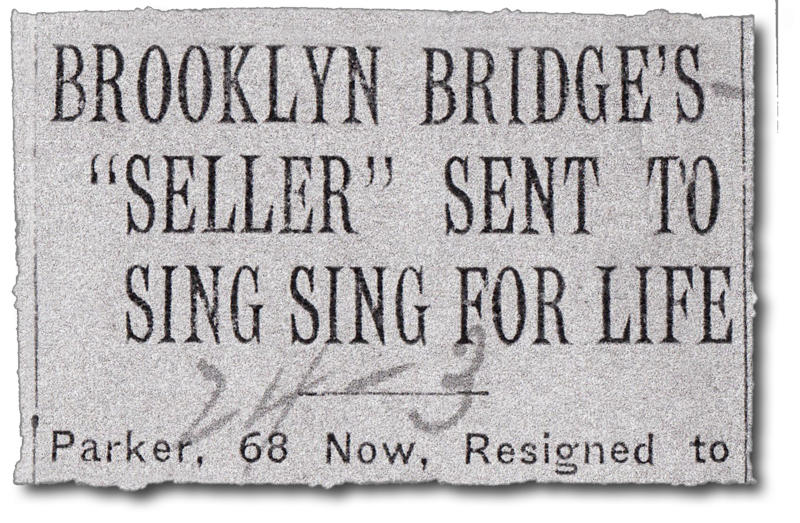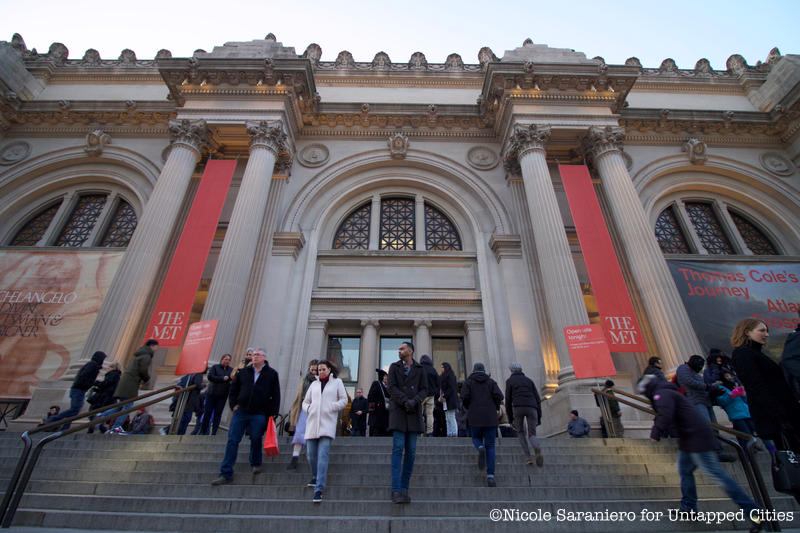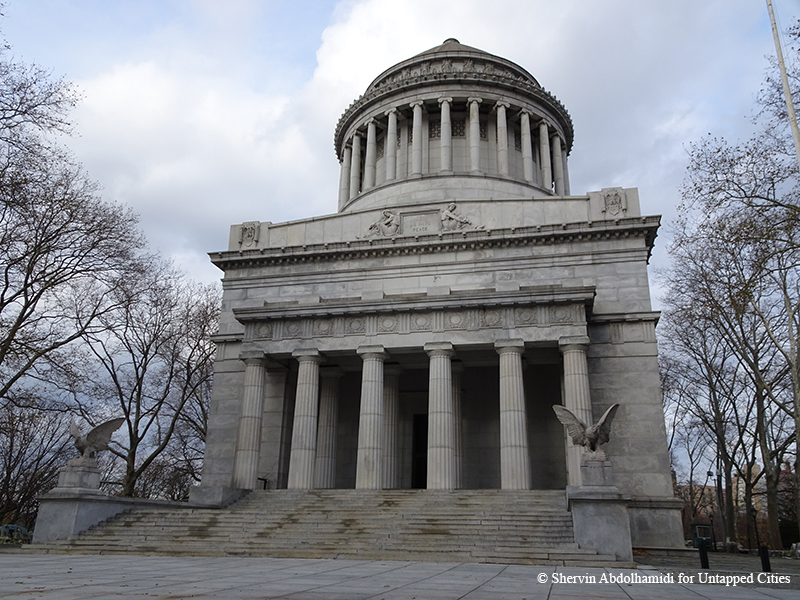Big cities around the world boast impressive buildings and structures that attract millions of people each year who are eager to visit. In these crowds of starry-eyed admirers, scammers see opportunity. In the late 19th and early 20th centuries, men like George Parker and Victor Lustig became famous for preying on unsuspecting victims to whom they would “sell” famous landmarks for large sums of money. Here, we take a look at some of those famous landmarks sale scams spanning from New York to Paris, and London.
1. The Flatiron Building

The sale of the Flatiron Building which took place on March 22nd was not a scam. The landmark was put up for auction in a legitimate sale ordered by the court after an irreconcilable dispute among the building’s owners. After a 40-minute bidding war, the triangular structure was sold, and things got sketchy after that.
The winning bidder was a relatively unknown investor, Jacob Garlick of the venture capital firm Abraham Trust. His $190 million bid ousted former owner Jeff Gural of GFP Real Estate. When it came time for Garlick to leave a $19 million deposit, however, he didn’t pay up. Now, since he missed the deadline to leave a deposit and wasn’t granted an extension, the building was put up for auction a second time. On the next go-round, one of the former Flatiron owners, Jeff Gural of GFP Real Estate, won the bidding with a $161 million bid.
2. Brooklyn Bridge

You might not be surprised to know that the Brooklyn Bridge, an iconic New York City structure, has been “sold” more than once by many con men since it was completed in 1883. One of the most famous of these con men was George C. Parker who would swindle people into “buying” the bridge at least two times a week for years.
Parker would prey on unsuspecting tourists, offering to let them build a fake tollbooth where they could collect all the tolls for themselves. Parker would usually ask for anywhere between $50 to $50,000. Some people even started to build their own tollbooths on the bridge before the police had to tell them they had been scammed.

Eventually his work caught up with him and earned him three counts of fraud. The third time landed him in Sing Sing Prison for eight years where he died in 1936. His antics live on in the famous American slogan: “If you believe that, then I have a bridge to sell you.
Parker wasn’t the only one who “sold” the famous landmark. Many other con artists would do the same, swindling poor passersby. Another notable seller was William McCloudy, a.k.a. “I.O.U O’Brien” who sold the bridge in 1901. For the sale, he was convicted of grand larceny and served two and half years in Sing Sing. The first man to attempt to sell the bridge Peaches O’Day. He sold the bridge for $200 in 1899. The gullible citizen received a bill of sale reading “One bridge in good condition.”
3. The Met Museum, Madison Square Garden & Grant’s Tomb

George Parker is most famous for selling the Brooklyn Bridge, but those are not the only landmarks he conned people into buying. Others included the original Madison Square Garden, the Metropolitan Museum of Art, and Grant’s Tomb. His Grant’s Tomb scheme is probably his most outlandish one, since he pretended to be the son of the former general and president in order to sell it.
Parker did extensive preparation for his scams, which is probably why he was able to sell these New York City landmarks over and over again for about 30 years. He even went as far as to set up fake offices and documents to prove his “legal” ownership of the structures.

Parker mainly targeted wealthy immigrants coming in through Ellis Island. Since America was seen as the land of opportunity, the poor victims of his scams did not see it coming. Beyond immigrants, Parker also targeted tourists, another relatively gullible group of people who were excited to purchase parts of New York City that Parker marketed as souvenirs.
4. Information Booth At Grand Central Station

In 1929, the Fortunato brothers, owners of the Fortunato Fruit Company were duped into renting out the information booth in Grand Central Station (in a previous incarnation before it became a terminal) for 50 weeks at $100,000 by two men under the aliases T. Remington Grenfall and Wilson A. Blodgett. The two con artists pretended to be the vice president and president, respectively, of a fictional company called “Grand Central Holding Corporation.
Grenfall had told the brothers that the information booth had shut down so the station decided to rent it out to merchants. As fruit merchants, all the brothers had to do was come up with the first 50 weeks worth of rent to get the contract. The Fortunato brothers delivered the $100,000 cashiers check to Blodgett and received a fake contract in return. The contract said the brothers could take over the booth on April 1st (ironically, April Fools Day).
So on April 1st, Tony and Nick Fortunato came to the information booth with their supplies to renovate it, only to see it was still occupied by information booth employees. The brothers showed the contract, yelling at the booth workers that it belonged to them now. The people working in the information booth refused to leave, and the police at the station refused to recognize the contract.
The brothers never got their $100,000 back, but continued to come once a year for a few years afterwards to harass the booth employees, which provided an exciting spectacle for passengers in the station. Grenfall and Blodgett, if those are their real names, were never caught.
5. Eiffel Tower

In 1925, Czech con artist Victor Lustig sold the Eiffel Tower to a scrap metal dealer. Bringing together six dealers, he posed as a Deputy Director General of Mail and Telegraphs, explaining that the French government wanted to demolish the Eiffel Tower because it was too expensive to keep up. To keep the fake project a secret, Lustig swore the men to secrecy because the government was not going to make a public announcement.
He asked each company to submit bids for a contract and he would choose one. Lustig ended up pulling one contractor aside and told him if he gave him a $100,000 bribe, the contract would be his. The contractor did so, and Lustig fled Paris with the money. None of the contractors reported him.
Six months later, Lustig returned to Paris and pulled the exact same stunt but with five new scrap metal dealers. He conned a second dealer out of $100,000. Lustig was reported this time, but he had already fled to the United States where he continued to pull many more cons, one famously on Al Capone which earned him $5000.
In 1936, Lustig was finally arrested on counterfeit charges and was sentenced to 11 years in prison where he died in 1947. However, before he died, he wrote the famous Ten Commandments for aspiring con artists:
- Be a patient listener (it is this, not fast talking, that gets a con-man his coups).
- Never look bored.
- Wait for the other person to reveal any political opinions, then agree with them.
- Let the other person reveal religious views, then have the same ones.
- Hint at sex talk, but don’t follow it up unless the other fellow shows a strong interest.
- Never discuss illness, unless some special concern is shown.
- Never pry into a person’s personal circumstances (they’ll tell you all eventually).
- Never boast. Just let your importance be quietly obvious.
- Never be untidy.
- Never get drunk.
6. Big Ben

Big Ben was fake sold around the same time all these other landmark schemes were happening, in 1920. Scottish actor Arthur Ferguson played a gullible American tourist in a play who gets conned. To see if Americans were actually that gullible, he decided to scam someone into buying Big Ben in London.
Since World War I had just ended, England was in a terrible economic situation. Ferguson used that to his advantage. Pretending to work for the Prime Minister, Ferguson told an American visiting in London that the had been hired by the Prime Minister to sell off London’s most famous landmarks to raise money. In fact, he sold each landmark several times over.
He usually charged $5,000 for Big Ben, $30,000 for Nelson’s column in Trafalger Square, and $10,000 as a downpayment for Buckingham Palace. After successfully scamming in London for several years, he was reported by many Americans at the US Embassy. He decided to leave the country and take his show on the road to the United States.

In the US, he sold many landmarks, including the White House, which he rented out to wealthy English tourists for $10,000 a year (turns out Americans weren’t the only gullible people). However, interestingly enough, though this story is quite grand, there seems to be a hard time proving whether or not Arthur Ferguson was a real person, and if he was, were those scams real? Author Dane Love who wrote The Man Who Sold Nelson’s Column and Other Scottish Frauds and Hoaxes said that there’s no contemporary reference of him in records or newspapers, which there would have been considering the size of his schemes. Moreover, Dane Love explained that he’s “done a lot of research and I am satisfied he never existed. It’s an urban folk tale.”
Curious to know more about the criminal world of NYC? Check out 5 Notorious NYC Crime Scenes
This article was written by Wera Penavic and updated by NIcole Saraniero in March 2023







